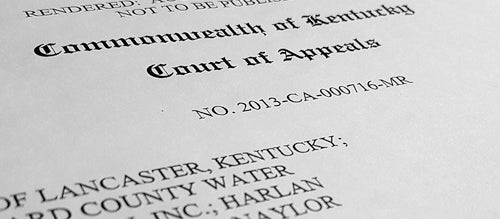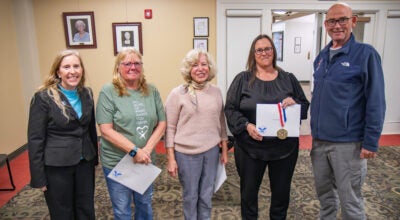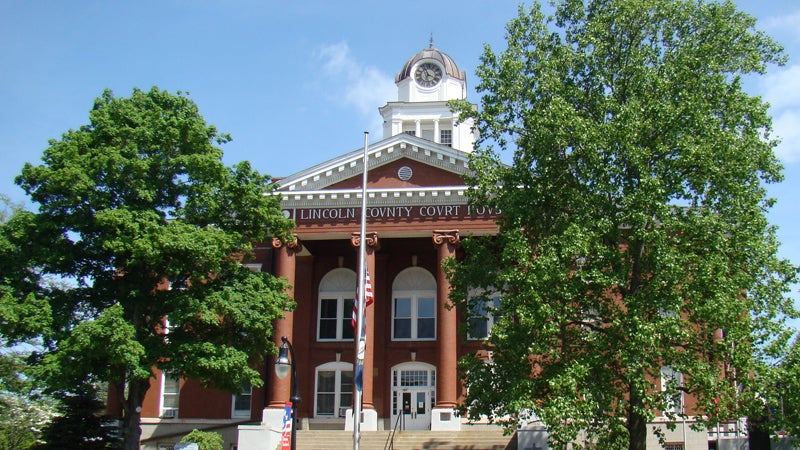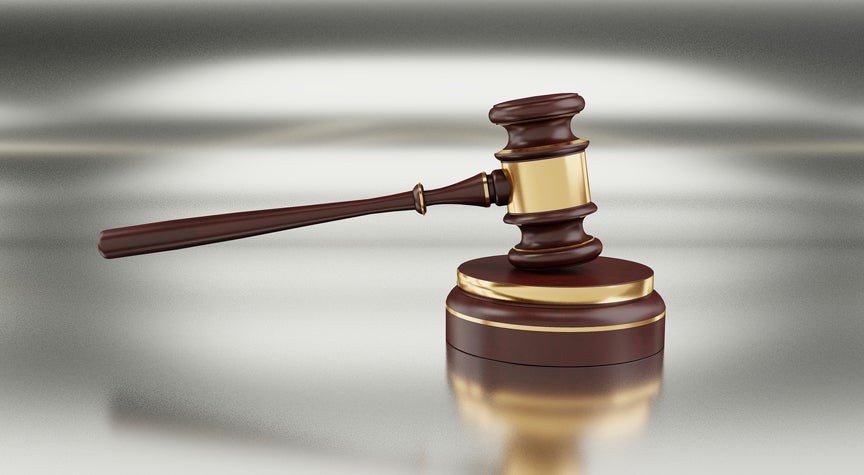911 fee on water meters valid, Ky court rules
Published 6:30 am Thursday, August 17, 2017
STANFORD – After five years of debate, the Kentucky Court of Appeals has found a monthly fee imposed on water meters to fund Lincoln and Garrard counties’ 911 communication service is constitutional.
The opinion rendered by a three-judge panel of the state Court of Appeals ruled last week that a reasonable relationship exists between the fee imposed on water meters and the 911 communications service.
With landline telephones becoming a thing of the past, both Lincoln and Garrard fiscal courts had looked to find new ways to fund the area’s 911 call center and more evenly distribute the burden of cost across residents.
“Right now, 911 funding through landlines falls primarily on the elderly and business. That’s just the simple fact of it,” Lincoln County Attorney Daryl Day said. “The people 60 (years old) and over are more likely to have a landline phone. A lot of businesses have more than one line and so they’re paying a disproportionate share.”
In 2012, both Lincoln and Garrard counties passed ordinances implementing a 25-cent fee on every water meter with plans to replace the $4 per month landline fee that currently funds the Bluegrass 911 center.
Day said people who don’t have landline phones and only use cellphones pay 70 cents per month, while those with landlines pay about $4 per month. The 70 cents on cellphones is split with the state and only about 30 cents of it goes to the Bluegrass 911 center, he added.
“This would put it on water meters and it spreads it out across a greater percentage of the population,” Day said.
Water suppliers would be expected to collect and deliver the fees to Bluegrass 911 and would be permitted to withhold a percentage of what’s collected for their administrative services.
Since funding a 911 center with a utility fee was new legal territory, Bluegrass 911 board members encouraged the Lancaster City Council to file a “friendly lawsuit” to challenge the constitutionality of the new fee, according to news archives.
The City of Lancaster filed a Verified Complaint for Declaratory and Injunctive Relief against Garrard County and the fiscal court alleging the water meter fee was an unconstitutional taking of property.
The fiscal court filed an answer and third-party complaint against the Garrard County Water Association before filing a motion for summary judgement. In March 2013, a Garrard Circuit Court judge upheld the validity of the ordinance and declared the imposed water meter fee was valid.
The City of Lancaster appealed the summary judgement and, a few months later, the state Court of Appeals reversed the ruling in favor of the city.
It wasn’t until February last year that the Kentucky Supreme Court vacated the Court of Appeals decision and remanded the case back for further consideration, in light of a ruling on a similar case in northern Kentucky.
The Campbell County case rendered a 5-2 Supreme Court decision, which rejected an appeal that claimed the Campbell County Fiscal Court’s annual fee levied on occupied housing and commercial units was unconstitutional.
After considering the ruling, a unanimous opinion authored by Court of Appeals Judge Jeff S. Taylor on Aug. 11 affirmed the circuit court’s previous ruling that the fee on water meters constitutes a valid user fee.
“We reluctantly agree that a reasonable relationship exists between the 25 cents fee per month imposed upon water meters in Garrard County and the benefit of utilizing 911 service,” Taylor wrote in the majority opinion.
Day said people are generally present where water meters are present, even those located on farms.
“If you’re actively farming that, you could be involved in a farm accident and need 911 at that address,” Day said. “Whether you live there or not, there are activities on that property that result in 911 calls.”
The court’s decision means relief for Lincoln County’s budget, Day said, because it will free up thousands of dollars in the general fund that was being used to fund the Bluegrass 911 center while awaiting a final opinion on the fee.
“That is taking money away from road projects, water projects, doing extra things at the park. That’s money we’re spending for 911,” he said. “This will get us all of that funding back.”
Day said the average monthly fee won’t be more than $3.50 to $4 a month because most properties only have one water meter.
In light of the Aug. 11 opinion, Day said he expects the Lincoln County Fiscal Court to pass a new ordinance some time in September.
“Now that the Supreme Court has ruled on it, it’s effective statewide,” he said.
Once the funding is established and on it’s way in, Day said that’s when the fiscal court will do away with the landline phone fee.
“We don’t want to take that off until we make sure that we’ve got this one in place because we don’t want a gap in the funding,” he said.
The waiting is over though, Day said, and the fiscal court can now proceed to distribute the burden of the 911 funding more evenly across the county.
“We are finally to the end point,” he said.






